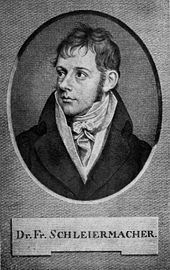Das letzte Wort hat die Liebe
 Rob Bells Buch Love Wins wird pünktlich zum Jugendplus-Kongress 2011 auf Deutsch beim Brunnen Verlag erscheinen. Schade. Dieses Buch brauchen wir nicht!
Rob Bells Buch Love Wins wird pünktlich zum Jugendplus-Kongress 2011 auf Deutsch beim Brunnen Verlag erscheinen. Schade. Dieses Buch brauchen wir nicht!
Inzwischen hat sich auch die Evangelische Allianz in Großbritannien hinter eine kritische Rezension des Buches gestellt. Derek Tidball schreibt:
Love Wins however only presents half the truth, which is disturbing to those who believe in the other half of the truth. Old Testament verses are strung together which speak of God’s grace triumphing over Israel’s sin and that their punishment will have a ’sale by‘ date. But he never mentions repentance in this connection as the prophets do, nor the fact that it was a remnant restored to the homeland. His teaching on hell ducks some hard issues while firing out a lot of questions of his own. God’s wrath, and his holiness, is touched on only very inadequately and insubstantially. He says the sacrificial understanding of the cross belongs to a primitive cultural world we no longer inhabit, so he sidesteps a key understanding of the cross. He assumes that people will come round to accept God’s love in the end, and doesn’t see why death is the irreversible cut-off point. But why does he think people will ‚repent‘ after death when they haven’t done so before? He uses some parables that appear to fit his argument but ignores others and uses them all in a somewhat interesting way.
Hier: www.eauk.org.
 Wenn stimmt, was in dieser:
Wenn stimmt, was in dieser: Die Lust an der Grausamkeit ist größer als alle moralischen Hemmungen. Drei neue Studien gehen dem Ursprung des Bösen nach. Über
Die Lust an der Grausamkeit ist größer als alle moralischen Hemmungen. Drei neue Studien gehen dem Ursprung des Bösen nach. Über  »Und sie bewegt sich doch« – dieser Ausspruch sollte die Standfestigkeit des Astronomen Galileis gegenüber der Inquisition zeigen. Der Satz fiel allerdings nie. Trotzdem wird die Geschichte um Galilei immer wieder dafür missbraucht, um die Vorstellung vom aufrechten Wissenschaftler und der fortschrittsfeindlichen Kirche zu befestigen (auch Brian McLaren hat dieses Bild eindringlich bemüht, vgl. dazu Fußnote 5 in dem Vortrag
»Und sie bewegt sich doch« – dieser Ausspruch sollte die Standfestigkeit des Astronomen Galileis gegenüber der Inquisition zeigen. Der Satz fiel allerdings nie. Trotzdem wird die Geschichte um Galilei immer wieder dafür missbraucht, um die Vorstellung vom aufrechten Wissenschaftler und der fortschrittsfeindlichen Kirche zu befestigen (auch Brian McLaren hat dieses Bild eindringlich bemüht, vgl. dazu Fußnote 5 in dem Vortrag  Wer durchschauen möchte, wie sehr – trotz Neo-Orthodoxie –, die Theologie der Gegenwart von Friedrich Schleiermacher (1768–1834) geprägt ist, sollte sich diese ausgezeichneten Beiträge des DLF anhören (vgl. auch
Wer durchschauen möchte, wie sehr – trotz Neo-Orthodoxie –, die Theologie der Gegenwart von Friedrich Schleiermacher (1768–1834) geprägt ist, sollte sich diese ausgezeichneten Beiträge des DLF anhören (vgl. auch